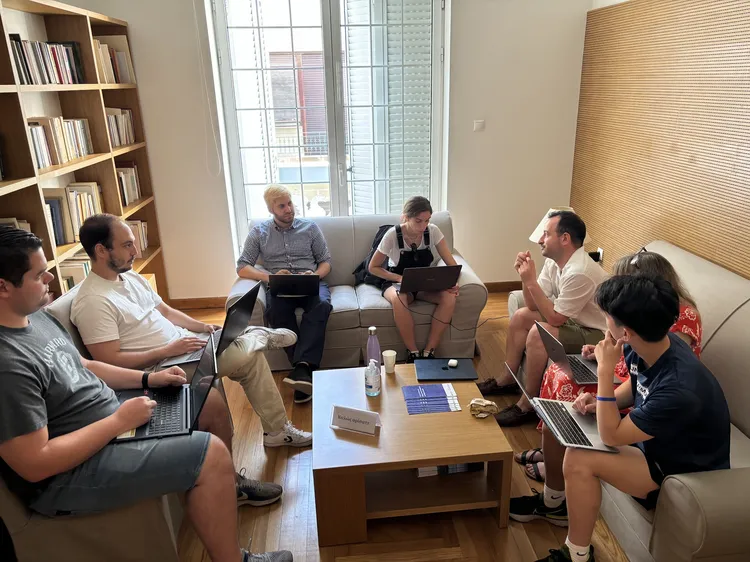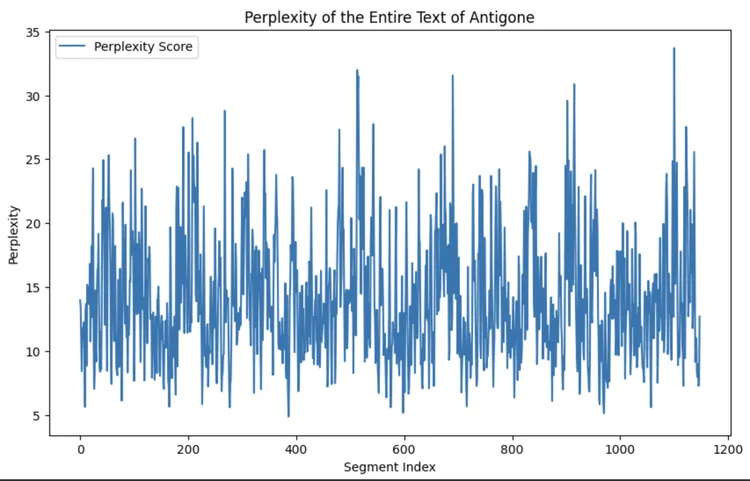Act I for Steven Feng ’27 🎭
6 August 2024
Steven explored Greek tragedy at the DH for Hellenic Studies Institute.

Students often learn that the Chorus comments on the action of a Greek drama. But few ask how it actually influences the play.
Enter Steven Feng ’27, who explored this question at the DH for Hellenic Studies Summer Institute at the Princeton Athens Center.
“Scholarship on the Chorus in ancient Greek tragedies confuses and excites me; perhaps their opaque songs are not as commonplace and unimpactful as we thought.”
Steven was one of eleven students and scholars from Princeton and Greece at the 2024 Institute, which was sponsored by Princeton’s Seeger Center for Hellenic Studies in collaboration with the CDH, MARBAS, DARIAH-EU, and partners at Athens University for Economics and Business (AUEB). Institute attendees participated in four days of hands-on DH workshops, one-on-one consultations, and discussions on this year’s theme, “Working with Text.”

Steven—who plans to major in classics and economics with minors in computer science, finance, and philosophy—explained that he became interested in DH after reading “The Syntax of the Heroes? A Treebank-Based Approach to the Language of the Sophoclean Characters” by Francesco Mambrini, which applies computational methods to characters’ syntax in Greek tragedies. He was curious whether “we can use similar approaches to provide a quantitative perspective regarding the Chorus’s role and impact.”
At the Institute, Steven consulted with Professor John Pavlopoulos (AUEB), who suggested that shifting his focus from syntax to NLP would offer a better approach to learning about the Chorus’s influence. Pavlopoulos also helped Steven learn how to train a language model, building on what Steven learned about deep learning for NLP the first day of the Institute.
For his project, called Chorus NLP, Steven then “trained a language model on the speeches of the chorus and measured how well the model can predict the speeches of the other characters throughout the tragedy Antigone by Sophocles.”
Steven hopes the accuracy of the prediction, called perplexity, can help us see how much the Chorus matters in Antigone.

Each “segment” represents one hundred characters of Antigone. The first segment has an index of zero, the second has an index of one, and so on.
After using digital tools to identify peaks of perplexity scores, Steven plans to return to the text to continue his research. Eventually, he hopes to explore “bigger, more complex models to measure semantics, while incorporating more texts and authors into the dataset to compare among authors and plays using similar methods.”
Back on campus, Steven also hopes to apply his knowledge from the Institute to the Logion Project, which focuses on developing an NLP tool appropriate for premodern Greek texts. The Project is led by Barbara Graziosi, Ewing Professor of Greek Language and Literature at Princeton and a member of the CDH Executive Committee.
And, of course, he imagines his future coursework will lead to other ideas as well.
We’re looking forward to the next act!